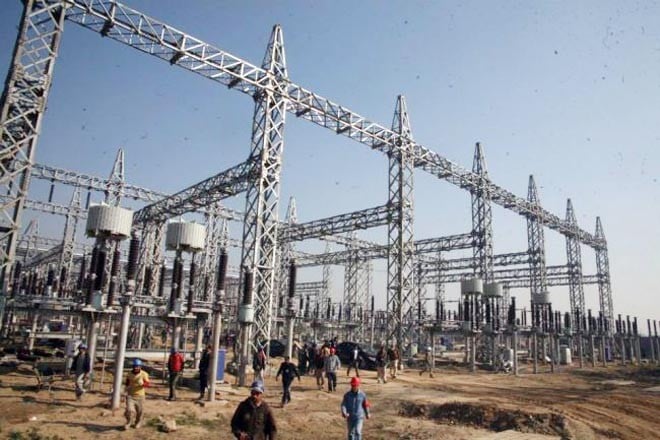
Nandipur Power Project fiasco belies the government claims of undertaking energy efficient projects

Nandipur Power Project -- one of the delayed and problematic power projects of the country -- is once again in the spotlight these days. The ruling PML-N government is under severe criticism for making it very costly and completing it in haste amid allegations of anomalies and professional negligence.
The recent controversy of this up to 5525 Megawatt thermal power project set up on a running canal in the Punjab province started when the government decided to move courts for increasing the price of electricity generated from this power station, which, in experts’ view, is already very high.
A couple of weeks ago, the Federal Ministry of Water and Power moved NEPRA to increase the per unit cost of electricity produced from Nandipur plant at Rs15.63 per unit, while NEPRA had approved it at Rs11.64 per unit. The NEPRA, however, refused to entertain the government request. Now, the government is planning to move a court of law to increase the tariff.
Meanwhile, last month, in another incident, the record of oil purchase of the power project was also gutted by unknown people, further adding to doubts that something is going wrong in the project. Khawaja Muhammad Asif, Federal Minister for Water and Power, talking about the burning of record of this multi-billion project, said the fire was meant to destroy evidence of oil theft. The fire broke out in the middle of night at a security office of the project site.
"The Nandipur power project has been mishandled from the beginning. Many requirements are not met and its machinery had been lying at the port in Karachi for several months just for alleged kickbacks. Furthermore, it was not completed in a good way amid the allegations of corruption and negligence," says Dr Salman Shah, former federal finance minister. He says the project later became practically difficult in term of cost and consumers will have to bear the high cost.
The project, conceived during the Pervez Musharraf regime, was hastily taken up by the sitting government in 2014 to meet the ongoing energy crisis. The ruling PML-N has promised the masses to resolve the loadshedding issue by 2018 -- the time of next general elections.
In financial terms, according to official documents, the total losses of the project are estimated at Rs164.5 billion. The Executive Committee for the National Economic Council (ECNEC) had re-approved the project in July 2013 and revised the cost of the project, this time to US$58.416 million.
The project, allegedly, is marred by cost overruns and political and administrative blunders committed by the two consecutive governments. The project is located on the left bank of the Upper Channel Canal, near village Nandipur, Gujranwala and initially it was expected to generate 425MW of electricity if run on furnace oil and 525MW if run on gas.
The Economic Coordination Council (ECC) approved the project in December 2007. The initial cost of the project was estimated to be Rs22 billion. However, according to the National Electric Power Regulatory Authority (NEPA), the cost went up to Rs84 billion by the last year, 2015.
In May 2014, Prime Minister Nawaz Sharif inaugurated the first turbine of the project with around 95MW capacity which was termed a ‘miracle’ by the government. The project, designed to be run on furnace oil, started functioning even before the Furnace Oil Treatment Plant was installed. The plant was originally designed to run on furnace oil. Later, additions were made to it so it could run on gas and diesel as well, making it a tri-fuel plant with additional cost of many billions.
"The fiasco of Nandipur power project actually indicates fraud and sheer negligence that is being hidden by the government which is trying to cover up the issue by adding to the project cost and raising electricity price. The project would have been viable had it been completed five or six years ago. And now it is becoming more difficult for the government to abandon the project after spending huge money. Such projects become burden on the economy and consumers without accountability," says Syed Tanzeem Hussain Naqvi, former member (Power) of Water and Power Development Authority (WAPDA). Calling for transparency and accountability in such projects, he says such projects do not help in resolving the crisis, but add to it.
According to the NEPRA reports highlighted in media, Nandipur power project is generating the most fuel-expensive electricity among about 80 power plants operating in the country. It belies the government claims of making this project energy efficient.
Work on the power plant started in October 2008 which was expected to be completed by April 2011. But, the work was halted in April 2010 after the Federal Law Ministry wanted the project examined by legal authorities. Meanwhile, the foreign loans expired in August 2011 and the project consignments were stopped at the Karachi port.